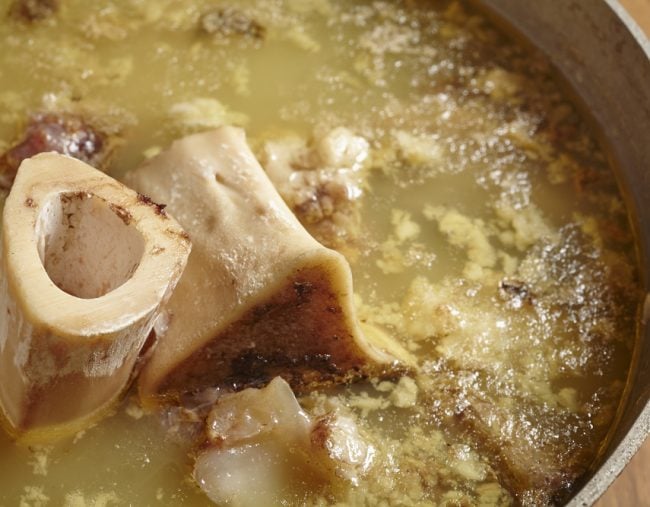
Longer, stronger hair. Nails, too.
A cure-all for arthritis. Boosted detoxification.
Glowing skin. Good for gut health.
A substitute for milk.
These are just some of the health claims you’ll see on the internet – or hear from your ‘wellness’ friends – when looking into the benefits of drinking bone broth.
Yep, your mum called it stock, back when stock was actually made from the bones of cows or chickens, before it came is a small flavoured cube. Now we’re calling it bone broth and many people are believing it’s almost some form of medicine.
So let’s take a look at the truth.
Bone broth health claims that do stack up.
The good news is that some of the claims out there aren’t totally wrong.
You know that whole ‘have some chicken soup when you’re sick’ advice? Turns out there’s an element of truth to it.
“There is some evidence that chicken soup may be helpful for upper respiratory tract infection,” Professor Manny Noakes, Senior Principal Research Scientist on the Nutrition and Health Program for the CSIRO told Mamamia.
“This seems to result from the effect on clearing nasal mucus more quickly.”
“There are also reports of anti-inflammatory effects. Bone broth can vary a lot in terms of what it contains. In the case of chicken, bones that include the cartilage may release collagen through cooking and some of the breakdown products of that collagen may be responsible for the anti-inflammatory properties,” Professor Noakes said.
“There is certainly some scientific evidence for benefits to joint health, too. However, any benefit for skin, hair and nails hasn’t been confirmed in scientific studies.”





























































































